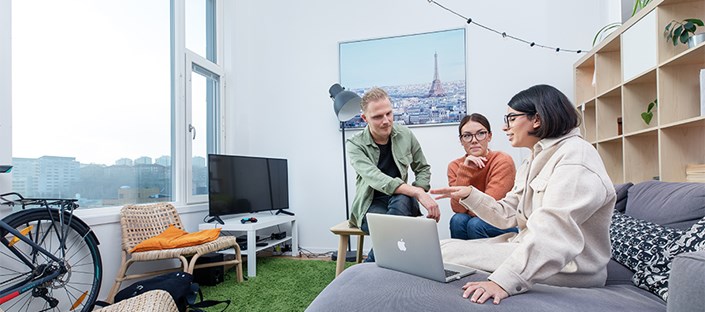
Bike to work or install solar panels? Gender affects our view of sustainability and how we plan our energy consumption. In a collaboration between HSB Living Lab and the product design studio Boid, in Gothenburg, Sweden, a concept is now being developed for how households’ energy systems can become more inclusive, equal and efficient.
Research indicates that norms and behaviors linked to gender affect people’s relationship to energy, yet the importance of gender in the development of energy systems has long been underestimated. A key problem is that energy technology and energy policy are stated to be gender-neutral, when in fact, it is gender-blind.
“Energy solutions and energy policy are thus assumed to be for everyone, but neglect the impact of socio-economic, cultural and gender conditions. This leads to solutions becoming less efficient, achieving the wrong effects and preventing the transition to more sustainable energy systems”, says Kalle Ekdahl at Boid.
For example, research shows that the traditionally female-coded responsibility for household sustainability focuses on daily project management around food, clothing and shorter transports. The male-coded action is instead moving towards more comprehensive technical investments.
“For example, women may more often choose a vegetarian diet, buy organic products and bike to work instead of driving, while men think more about installing solar panels, reviewing heating systems and improving insulation,” says Kalle Ekdahl.
The result of gender blindness is thus an imbalance in how households’ energy consumption is valued and planned, where the technical and engineering perspective has interpretive precedence.
“In this project we want to turn this around, by investigating how energy systems can become more inclusive,” Kalle Ekdahl continues.
Starting in the spring of 2021, Boid has worked to develop a concept for managing and planning household energy, as part of the Gender & Energy Task focusing on the relation between gender and energy use.
“It is an interesting and challenging process that has meant that we have done research in norm criticism, gender studies and critical thinking, while we have developed technology and designs for an actual product,” says Kalle Ekdahl.
Boid is now working on developing prototypes that will be tested in the apartments at HSB Living Lab’s research arena in the autumn of 2023. Evaluation and results are done with the help of both physical prototypes and interviews.
The underlying thesis is that control of energy consumption can contribute to a more efficient use of resources, and control that has an inclusive, equal and accessible interface has an even greater potential.
“Today, the typical control systems for household energy are either aimed at an individual and linked to an app that the person has in their phone, or placed far down in the basement. Instead, we want to create an interface that is located visibly and centrally in the home and is naturally accessible to everyone in the household,” says Kalle Ekdahl.
He concludes:
“The tests will reveal which path we will take with the prototype, but we believe that the potential is great in a concept that both encourages members of a household to talk about energy consumption and makes it easier for everyone to handle a future and perhaps even unstable energy supply.”

